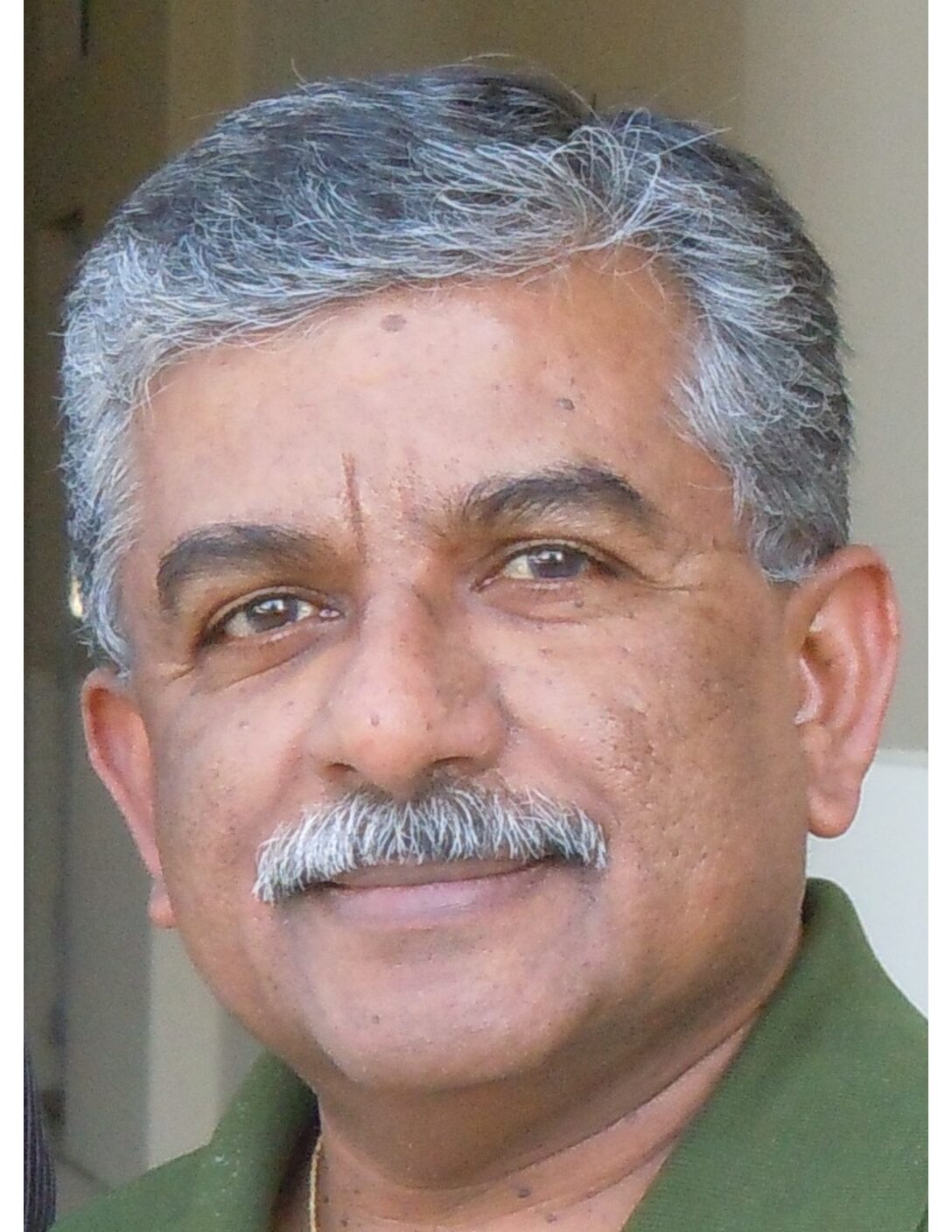
Pronouns: he/him
Email: rkrish@purdue.edu
Phone: 765-494-3793
Office:
3060 Lyles Porter Hall
715 Clinic Drive
Ananthanarayan (Ravi) Krishnan
Professor, Department of Speech, Language, and Hearing Sciences
Areas of Expertise
- Auditory Neuroscience
- Brainstem and cortical Neuroanatomy and Electrophysiology
- Neural encoding of complkex sounds in normal and impaired ears
- Neural encoding of pitch in the brainstem and auditory cortex and how language experience shapes this processing
Department of Speech, Language, and Hearing Sciences Research Area(s)
- Hearing Science; Hearing Disorders
Biography
I have a strong training in Auditory Neuroscience and a range of basic science and translational research experience using auditory electrophysiological measures at the brainstem and cortical levels. I am also very comfortable in the interpretation of fMRI data-one of the key measures proposed herein. The goal of the proposed research is to investigate the distributed processing network for pitch processing at the brainstem and cortical levels, and how it is shaped by language experience. Specifically, our aim is to better understand how neural pitch representations of lexical tone interact with extrasensory, higher-order processes at various levels of processing along the hierarchical auditory pathway. We have published extensively on temporal attributes of pitch processing at the level of brainstem and auditory cortex separately. The logical next step is to extend this research program by employing timing measures at cortical and brainstem levels (EEG) coupled with measures of cortical spatial locations contributing to pitch processing (fMRI) in an effort to advance our knowledge about the spatiotemporal dynamics of the language experience shaped distributed hierarchical pitch processing network. My research collaboration with the several leading researchers reveals a proven track record over the past 12 years. I have experience in leading and participating in collaborative projects funded through NIH. I have the expertise, leadership and motivation necessary to successfully carry out the proposed work. In summary, I have a demonstrated record of accomplished and productive research projects in an area of high relevance for both normal and impaired hearing populations, and my expertise and experience have prepared me to lead the electrophysiological components of the proposed project
Education
- PhD, 1983, University oof Texas-Dallas
- M.A., 1980, University of Memphis
- B.Sc. 1973, University of Mysore
Websites
Diversity, Equity and Inclusion
- As part of SLHS, my obejctive are consistent with the SLHS DEI mission. Within a field of only 8% racial minorities, the Department of Speech, Language, and Hearing Sciences (SLHS) is committed to making deliberate and calibrated efforts to increase representation and support and elevate marginalized communities. In doing so, we aim to foster diversity, equity and inclusion in our education, research, training and clinical service missions to dismantle practices that perpetuate disparities. We will lead by example to promote cultural responsiveness and reject all forms of prejudice, intolerance and discrimination.
Current Courses
- SLHS 506 - Neural bases of Hearing
- SLHS567 - Electrophysiological Assessment I
- SLHS302 - Hearing Science
Selected Publications
- 1. Suresh, C., & Krishnan, A. (2022). Frequency-following response to steady-state vowel in quiet and background nooise among marching band participants with normal hearing. American Journal of Audiology, 31, 719-736
- 2. Krishnan, A., Gandour, J.T., & Suresh, C. (2021). Cortical hemisphere preference and brainstem ear asymmetryreflect experience-dependent functional modulation of pitch, Brain & Language, 221, October, 104995.
- 5. Suresh, C., Krishnan, A., & Luo, X. (2020). Human Frequency Following Responses to vocoded speech: Amplitude modulation versus amplitude plus frequency modulation. Ear & Hearing, 41,2, 300-311
- 6. Krishnan, A., Suresh, C., & Gandour, J.T (2019). Tone language experience-dependent advantage in pitch representation in brainstem and auditory cortex is maintained under reverberation. Hearing Research, 177, 63-71.
- 7. Ananthakrishnan, S., & Krishnan, A (2018). Human frequency following responses to iterated rippled noise with positive and negative gain: Differential sensitivity to waveform envelope and temporal fine-structure. Hearing Research, 367:113-123.
Selected Honors/Awards
- Fellow/ American Speech Langiuage Hearing Association - August 2022
- Outstandinng Graduate Instructor/ SLHS - May 2019
- Career Research Achievment Award/ HHS - October 2016
- Seed for Success research Award/Purdue University - October 2012
- -
Selected Grants
- PI, Influence of language experience on subcortical and early cortical representation of pitch (RO1 DC 008549), Period: 4/1/2012- 3/31/2017, $1.8 million.
- PI, Language-dependent plasticity in the encoding of pitch in the human brainstem (RO1 DC 008549), Period:9/1/2007- 8/31/2011, $870000
- PI, Neural encoding of speech in the human brainstem (RO3 DC 01980-02), Period: 1993-1995, $230000
Professional Affiliations
- American Speech Language Hearing Association
- American Auditory Society
- Association for Research in Otolaryngology